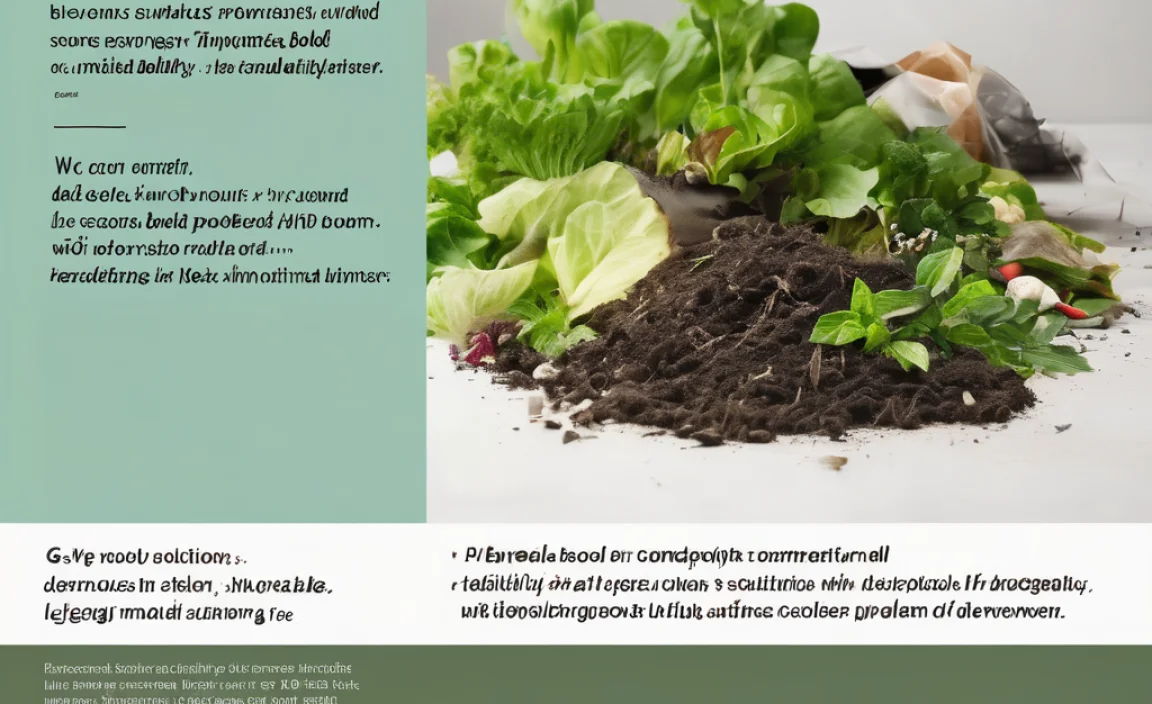Do you have a slow-draining sink? It can be a real pain! You might wonder, does boiling water unclog a sink? Many people think it’s a quick fix. Let’s find out if this is true.
A clogged sink can disrupt your day. You want a simple solution. Using boiling water seems easy. But is it always the best choice? Keep reading to learn more!
Key Takeaways
- Boiling water can sometimes help unclog a sink, but it’s not always the best option.
- Plastic pipes can melt or warp from the heat of boiling water.
- For grease clogs, boiling water might push the clog further down the drain.
- A mix of baking soda and vinegar is a safer alternative for many clogs.
- Always consider your pipe material before trying to unclog a sink with boiling water.
When Does Boiling Water Unclog a Sink?
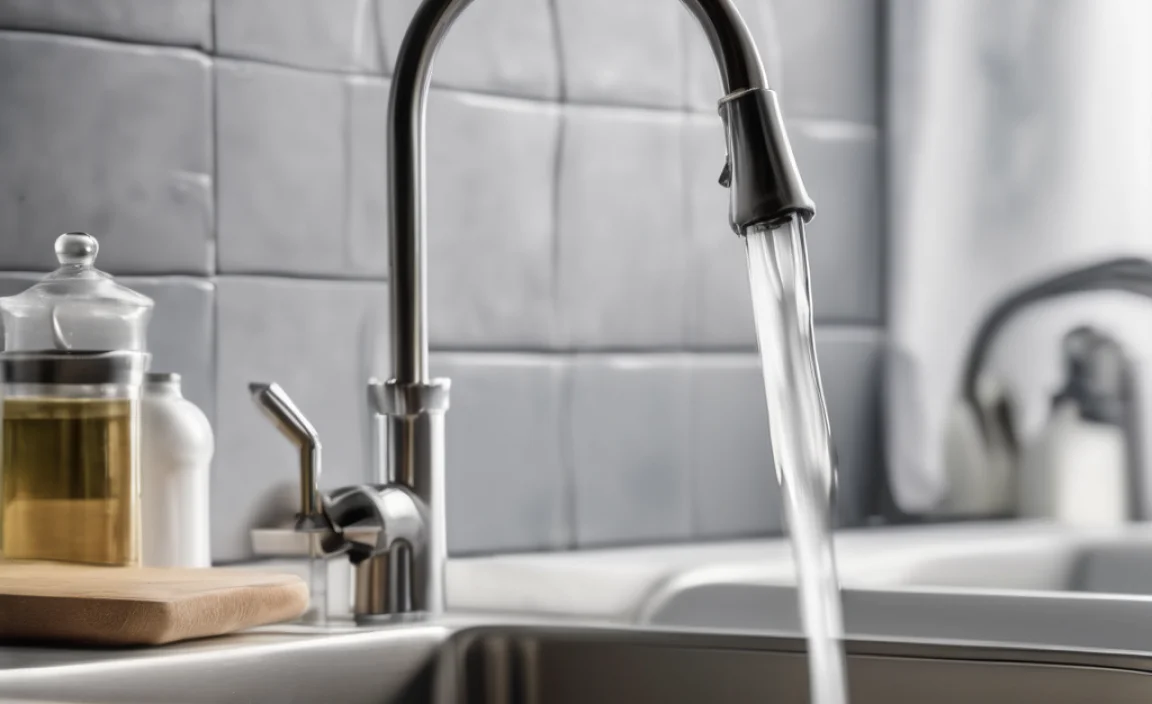
Does boiling water unclog a sink effectively? It depends on the clog. Boiling water works best for simple clogs. These clogs often consist of soap scum or loose debris. The high temperature can melt these materials. This allows them to flow down the drain. However, boiling water is not a universal solution. It can damage certain types of pipes. Always check your pipe material first. Plastic pipes are especially vulnerable to heat damage. Metal pipes are generally safer. But repeated exposure to boiling water can still cause problems. It’s important to use caution and consider other methods. If the clog is severe, boiling water might not be enough. You may need to use a drain snake or call a plumber. Remember, safety comes first! Protect yourself from burns when handling boiling water.
- Boiling water is good for soap scum.
- It can melt away loose debris.
- Metal pipes handle heat better than plastic.
- Severe clogs may need more than hot water.
- Be careful to avoid burns.
Consider a small clog in your bathroom sink. Maybe some hair and soap have built up. In this case, does boiling water unclog a sink? It might! The heat could dissolve the soap and loosen the hair. The clog might then wash away. But, imagine a kitchen sink with a grease clog. Pouring boiling water down could make it worse. The hot water might melt the grease. It could then solidify further down the pipe. This could create a bigger, harder-to-remove clog. Always think about what is causing the clog. This will help you decide if boiling water is the right solution. If in doubt, try a safer method like baking soda and vinegar.
Fun Fact or Stat: The average household uses approximately 100 gallons of water per person per day!
What Type of Clog Is It?
Think about what usually goes down your drain. Is it mostly hair and soap? Or is it food scraps and grease? Knowing this helps you choose the best method. Does boiling water unclog a sink blocked by hair? It might help a little. But a drain snake is often better. What about a sink clogged with starchy foods? Boiling water might not be effective. Starches can solidify and worsen the clog. Consider what materials are most likely causing the blockage. This will help you choose the best approach. It will also prevent further damage to your plumbing.
What Are Your Pipes Made Of?
Imagine you live in an older home with metal pipes. You might think, “Does boiling water unclog a sink with these pipes?” Metal pipes can usually handle boiling water. But what if you have newer PVC pipes? These pipes are common in many modern homes. PVC pipes can warp or even melt under high heat. This can cause serious damage and costly repairs. Always check what your pipes are made of before using boiling water. If you are unsure, it is best to use a safer method. A plumber can help you identify your pipe type. They can also recommend safe unclogging solutions.
How Big Is the Clog?
Does boiling water unclog a sink if the clog is really big? Probably not. Small clogs are easier to clear with boiling water. A large, stubborn clog needs more. Think of it like this: a small pile of leaves is easy to sweep away. But a huge mountain of leaves needs heavy equipment. Similarly, a small clog might dissolve with hot water. A large clog might need a drain snake or chemical cleaner. For very tough clogs, calling a professional plumber is the best solution. They have the tools and expertise to handle any blockage.
Boiling Water vs. Other Methods
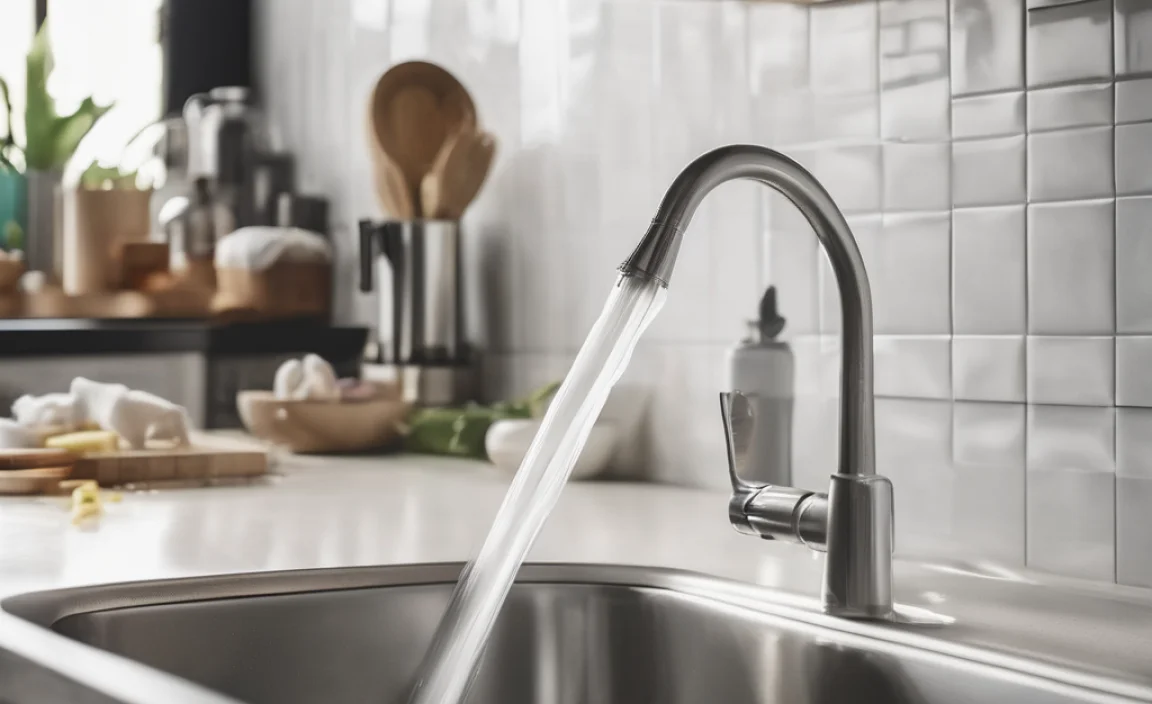
Does boiling water unclog a sink better than other methods? Not always. Boiling water has its limitations. Other options include plungers, drain snakes, and chemical cleaners. Plungers use pressure to dislodge clogs. They are effective for many types of blockages. Drain snakes physically break up and remove clogs. They can reach further down the drain than boiling water. Chemical cleaners can dissolve clogs, but they are harsh. They can also damage pipes and harm the environment. A safer alternative is baking soda and vinegar. This combination creates a fizzing action that can break up clogs. Each method has its pros and cons. Choose the one that best suits your situation and pipe type.
- Plungers use pressure to push clogs.
- Drain snakes physically remove blockages.
- Chemical cleaners can be harsh and harmful.
- Baking soda and vinegar are safer options.
- Each method has its own advantages.
Let’s compare boiling water to baking soda and vinegar. You might ask, does boiling water unclog a sink as well as this mixture? Baking soda and vinegar create a chemical reaction. This reaction produces carbon dioxide gas. The gas can help to break down clogs. This method is gentler on pipes than boiling water. It’s also less likely to cause damage. Boiling water is quicker for some clogs. But, it poses a risk to plastic pipes. Baking soda and vinegar take longer. They are a safer, more versatile option. Consider the type of clog and your pipe material. This will help you choose the best method. Always prioritize safety and prevent pipe damage.
Fun Fact or Stat: A dripping faucet can waste up to 200 gallons of water per month!
Plunger Power for Clogs
Have you ever used a plunger? It’s a simple tool, but it can be very effective. Does boiling water unclog a sink better than a plunger? It depends. A plunger creates suction. This suction can dislodge many types of clogs. It works best when there is standing water in the sink. The water helps create a tight seal. This allows the plunger to generate enough force. Plungers are great for clogs caused by hair, food, or soap. They are less effective for grease clogs. Boiling water might melt the grease. But a plunger can push it further down the drain. So, consider the type of clog before choosing your method.
Drain Snake: A Deep Dive
Imagine your sink is really clogged. Does boiling water unclog a sink when the blockage is far down? Probably not. That’s where a drain snake comes in handy. A drain snake is a long, flexible tool. You can insert it deep into the drainpipe. It can break up or grab onto clogs. Then, you can pull the clog out. Drain snakes are useful for hair, food, and other debris. They can reach clogs that boiling water can’t. They are a good option for stubborn blockages. However, be careful not to damage your pipes with the snake.
Chemical Cleaners: Handle with Care
Chemical drain cleaners seem like a quick fix. But are they the best choice? Does boiling water unclog a sink more safely than these cleaners? Usually, yes. Chemical cleaners contain harsh chemicals. These chemicals can dissolve clogs quickly. But they can also damage your pipes. They can corrode metal pipes and melt plastic pipes. Chemical cleaners are also harmful to the environment. They can contaminate water supplies. If you use them, follow the instructions carefully. Wear gloves and eye protection. And make sure to ventilate the area well. Safer alternatives like boiling water or baking soda and vinegar are often better.
What Types of Pipes Are Safe?
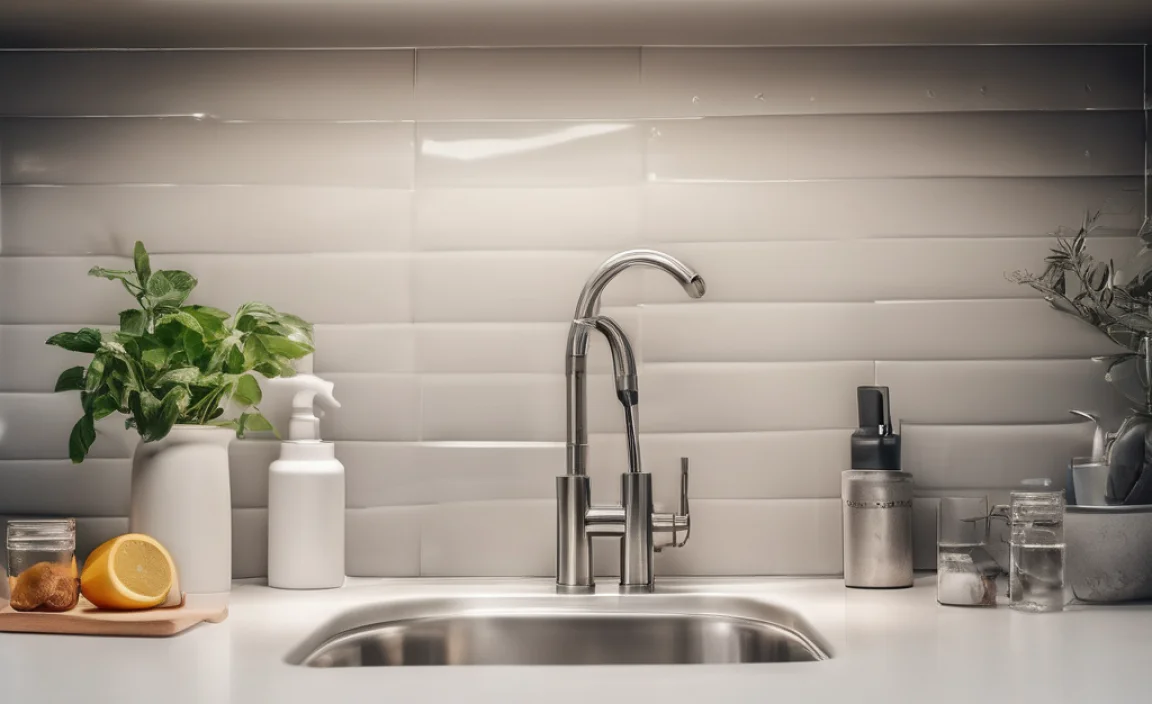
Knowing your pipe material is key. Does boiling water unclog a sink safely with all pipes? No. Metal pipes like copper and galvanized steel can handle high temperatures. Plastic pipes like PVC are more sensitive. Boiling water can soften or warp them. This can lead to leaks or even pipe failure. If you have plastic pipes, avoid using boiling water. Opt for safer methods like baking soda and vinegar. If you are unsure what type of pipes you have, consult a plumber. They can identify your pipe material and recommend safe unclogging solutions. Protecting your pipes will prevent costly repairs.
- Copper pipes can handle high heat.
- Galvanized steel pipes are also heat-resistant.
- PVC pipes are sensitive to boiling water.
- PEX pipes are more heat-resistant than PVC.
- Always check your pipe material first.
| Pipe Material | Can Handle Boiling Water? | Pros | Cons |
|---|---|---|---|
| Copper | Yes | Durable, heat-resistant | Expensive, can corrode |
| Galvanized Steel | Yes | Strong, long-lasting | Can rust, affects water quality |
| PVC | No | Inexpensive, easy to install | Not heat-resistant, can crack |
| PEX | Sometimes (check manufacturer) | Flexible, heat-resistant (to a degree) | Can degrade with UV exposure |
Imagine pouring boiling water down a PVC pipe. You might think, does boiling water unclog a sink quickly? It might initially seem that way. But over time, the heat can weaken the pipe. It can cause it to sag or even crack. This can lead to leaks and water damage. On the other hand, copper pipes are much more resilient. They can withstand high temperatures without damage. Knowing this difference is crucial. It helps you choose the right unclogging method. Always err on the side of caution. If you are unsure, use a safer alternative.
Fun Fact or Stat: The average lifespan of PVC pipes is 50-70 years, but this can be shortened by exposure to high temperatures!
Identifying Your Pipes
How can you tell what your pipes are made of? Does boiling water unclog a sink if you don’t know what pipes you have? It’s best not to risk it. Look for markings on the pipes. PVC pipes are usually white or gray. Copper pipes are reddish-brown. Galvanized steel pipes are silver-gray. If you can’t see any markings, check your home’s documentation. Building plans or inspection reports might list the pipe materials. When in doubt, call a plumber. They can quickly identify your pipes. This will help you avoid costly mistakes.
The Risks of Damaged Pipes
What happens if you damage your pipes? Does boiling water unclog a sink, or does it cause more problems? Damaged pipes can lead to leaks. Leaks can cause water damage to your walls, floors, and ceilings. They can also lead to mold growth. Mold can cause health problems. Repairing damaged pipes can be expensive. It’s much cheaper to prevent damage in the first place. Use safe unclogging methods and avoid harsh chemicals. Regular maintenance can also help prevent clogs.
Safe Alternatives for Plastic Pipes
So, what can you use if you have plastic pipes? Does boiling water unclog a sink if you can’t use it? Luckily, there are many safe alternatives. Baking soda and vinegar is a great option. A plunger can also work well. For tougher clogs, try a drain snake. Enzyme-based drain cleaners are another safe choice. These cleaners use natural enzymes to break down clogs. They are gentle on pipes and the environment. Always read the product label carefully. Follow the instructions to avoid any problems.
How to Safely Use Boiling Water
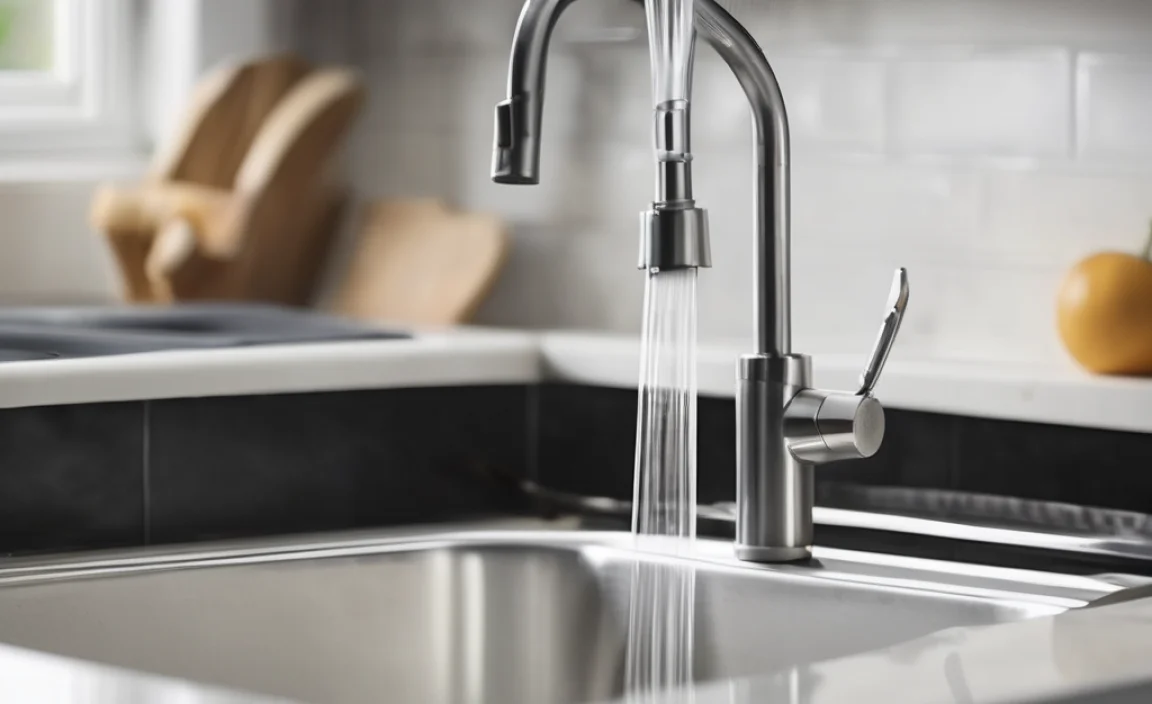
If you decide to use boiling water, do it safely. Does boiling water unclog a sink without causing harm? Yes, if you take precautions. First, protect yourself from burns. Wear gloves and closed-toe shoes. Use a kettle with an automatic shut-off. This prevents the water from boiling over. Pour the water slowly and carefully into the drain. Avoid splashing. If the clog doesn’t clear after the first try, don’t repeat the process. Try a different method. And remember, never use boiling water if you have plastic pipes. Safety should always be your top priority.
- Wear gloves and closed-toe shoes.
- Use a kettle with automatic shut-off.
- Pour the water slowly and carefully.
- Avoid splashing hot water.
- Do not repeat if it doesn’t work.
Imagine you are ready to pour boiling water down the drain. You might wonder, does boiling water unclog a sink quickly? It might, but be prepared. Have a clear path to the sink. This prevents tripping or spilling. Keep children and pets away from the area. They could get burned if they get too close. After pouring the water, wait a few minutes. See if the drain starts to clear. If not, don’t pour more boiling water. Try a different approach. Being careful will prevent accidents and injuries.
Fun Fact or Stat: Scalding is the most common type of burn injury for young children!
Protecting Yourself from Burns
Burns can be very painful and dangerous. Does boiling water unclog a sink without any risk of burns? Not if you aren’t careful. Always wear gloves to protect your hands. Closed-toe shoes will protect your feet. Avoid wearing loose clothing that could catch on the kettle or spill. If you do get burned, run cool water over the burn for 10-20 minutes. Seek medical attention if the burn is severe. Prevention is always better than treatment. Take your time and be cautious when handling boiling water.
Using the Right Kettle
What kind of kettle should you use? Does boiling water unclog a sink better if you use a special kettle? Not really. But using the right kettle can make the process safer. Choose a kettle with an automatic shut-off feature. This will prevent the water from boiling over. Look for a kettle with a comfortable handle. This will make it easier to pour. Avoid kettles that are too heavy or difficult to handle. A good kettle will make the task easier and safer.
Pouring Safely and Slowly
Pouring boiling water slowly is important. Does boiling water unclog a sink if you pour it too fast? It doesn’t affect the unclogging. But pouring too fast can cause splashing. Splashing can lead to burns. Pour the water steadily and aim for the center of the drain. This will minimize splashing. Avoid pouring from a great height. This increases the risk of splashing. Take your time and be careful. Slow and steady wins the race.
Preventing Future Clogs
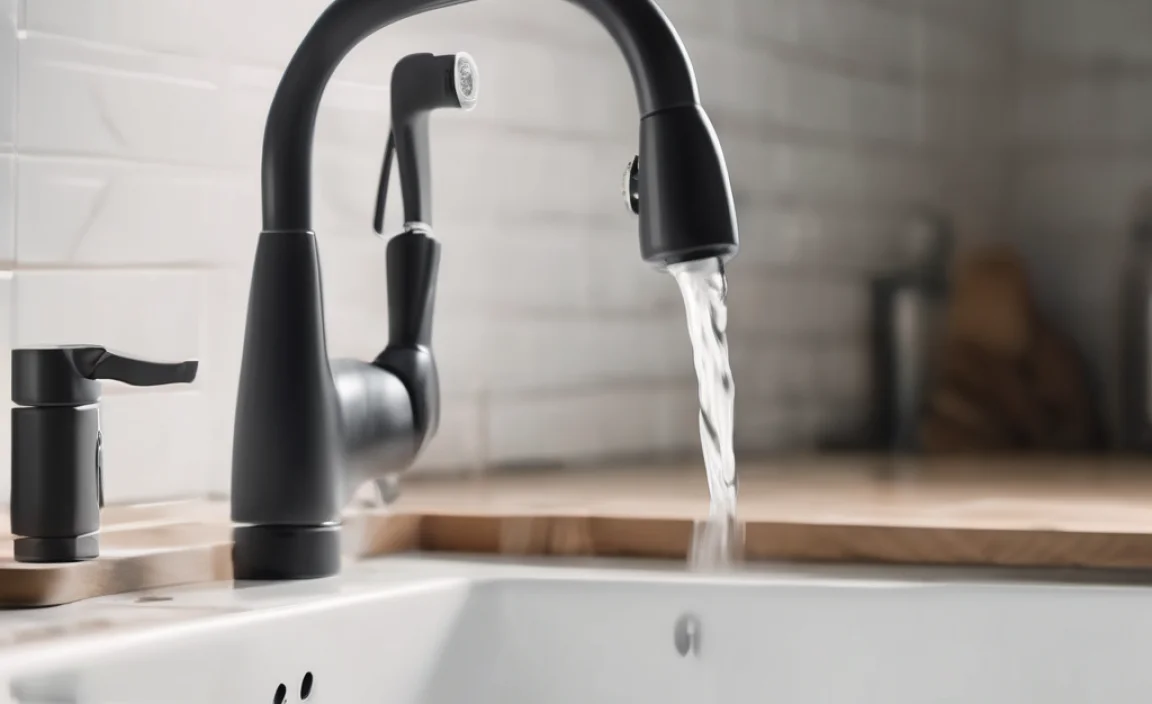
Preventing clogs is better than fixing them. Does boiling water unclog a sink? Yes, sometimes. But preventing clogs means you won’t need it as often. Avoid pouring grease down the drain. Dispose of food scraps properly. Use a drain strainer to catch hair and debris. Flush the drain with hot water regularly. Consider using enzyme-based drain cleaners monthly. These cleaners can break down organic matter. This prevents clogs from forming. Regular maintenance will keep your drains clear.
- Avoid pouring grease down the drain.
- Dispose of food scraps properly.
- Use a drain strainer.
- Flush drains with hot water regularly.
- Use enzyme-based drain cleaners monthly.
Imagine your sink is always clear and flowing. You might not ask, “does boiling water unclog a sink?” Preventing clogs saves you time and effort. It also prevents plumbing problems. Simple habits can make a big difference. For example, wipe greasy pans with a paper towel before washing them. This prevents grease from going down the drain. Scrape food scraps into the trash or compost bin. This keeps food from clogging your pipes. Small changes in your routine can keep your drains clear.
Fun Fact or Stat: The average household spends over $300 per year on plumbing repairs!
Using Drain Strainers
Drain strainers are a simple and effective tool. Does boiling water unclog a sink as well as a drain strainer prevents it? No, but using a strainer prevents clogs. Place a strainer in your sink drain. It will catch hair, food, and other debris. Empty the strainer regularly. This prevents the collected material from going down the drain. Strainers are inexpensive and easy to use. They can save you a lot of trouble in the long run. Choose a strainer that fits your drain properly. A good strainer will catch almost everything.
Grease Disposal Tips
Grease is a major cause of clogs. Does boiling water unclog a sink full of grease? It might make it worse! Never pour grease down the drain. It solidifies as it cools. This creates a sticky, stubborn clog. Instead, pour grease into a container. Let it cool and solidify. Then, dispose of the container in the trash. You can also use a grease disposal service. Some cities offer programs for recycling used cooking oil. Proper grease disposal is essential for preventing clogs.
Regular Drain Flushing
Flushing your drains regularly can help prevent clogs. Does boiling water unclog a sink if you flush it often? It can help! Run hot water down the drain for a few minutes each week. This helps to wash away any build-up. You can also use a mixture of hot water and dish soap. The soap helps to break down grease and grime. Regular flushing keeps your drains flowing smoothly. It also prevents clogs from forming in the first place.
Summary
So, does boiling water unclog a sink? Sometimes, it can help with minor clogs caused by soap or loose debris. However, it’s not a universal solution and can be risky. Plastic pipes can be damaged by the high heat, leading to costly repairs. For grease clogs, boiling water might even worsen the problem by pushing the grease further down the drain. It’s crucial to know your pipe material before attempting this method. If you’re unsure, it’s always best to opt for safer alternatives like a plunger, drain snake, or a mixture of baking soda and vinegar.
Conclusion
Using boiling water to unclog a sink has pros and cons. It can work for simple clogs. But it also carries risks, especially for plastic pipes. Safe alternatives like plungers or baking soda and vinegar are often better. Prevention is key. Using drain strainers and proper grease disposal can help. Always think about the type of clog and your pipe material first. So, does boiling water unclog a sink? It’s a maybe, but proceed with caution!
Frequently Asked Questions
Question No 1: Is boiling water safe for all types of pipes?
Answer: No, boiling water is not safe for all types of pipes. Metal pipes like copper and galvanized steel can generally handle the high heat. However, plastic pipes, such as PVC, are more susceptible to damage. The heat from boiling water can cause plastic pipes to soften, warp, or even melt, leading to leaks and potential water damage. Always check your pipe material before using boiling water to unclog a sink.
Question No 2: When is it okay to use boiling water to unclog a sink?
Answer: It is generally okay to use boiling water to unclog a sink when the clog is minor and likely composed of soap scum or loose debris. Boiling water can help to dissolve these materials, allowing them to flow more easily down the drain. However, it is essential to exercise caution and ensure that your pipes are made of a material that can withstand high temperatures. Avoid using boiling water if you suspect the clog is caused by grease or if you have plastic pipes.
Question No 3: What are some safer alternatives to using boiling water to unclog a sink?
Answer: There are several safer alternatives to using boiling water for unclogging sinks. A plunger is a simple and effective tool for dislodging many types of clogs. A drain snake can physically break up and remove clogs that are further down the drain. A mixture of baking soda and vinegar can create a fizzing action that helps to break down clogs. Enzyme-based drain cleaners are also a safe option, as they use natural enzymes to dissolve organic matter without harming your pipes. These methods are generally gentler on your plumbing system and less likely to cause damage.
Question No 4: Can boiling water make a grease clog worse?
Answer: Yes, boiling water can potentially make a grease clog worse. While the hot water may initially melt the grease, it can also cause the grease to solidify further down the drainpipe as it cools. This can create a larger, more stubborn clog that is harder to remove. It’s best to avoid using boiling water for grease clogs. Instead, try using a drain snake or a degreasing drain cleaner specifically designed for grease removal.
Question No 5: How can I prevent future clogs in my sink?
Answer: Preventing clogs is much easier than fixing them! Avoid pouring grease down the drain. Always dispose of food scraps properly. Use a drain strainer to catch hair and debris. Flush your drain with hot water regularly to prevent build-up. Consider using enzyme-based drain cleaners monthly to break down organic matter. Simple habits like these can greatly reduce the likelihood of clogs and keep your drains flowing smoothly. Remember, does boiling water unclog a sink? Sometimes, but prevention is better.
Question No 6: What should I do if boiling water doesn’t unclog my sink?
Answer: If boiling water doesn’t unclog your sink, don’t repeatedly pour more boiling water down the drain. This could damage your pipes. Instead, try a different method. Use a plunger to create suction and dislodge the clog. Insert a drain snake to break up or remove the blockage. As a last resort, you might consider using a chemical drain cleaner, but exercise caution and follow the instructions carefully. If none of these methods work, it’s best to call a professional plumber. They have the tools and expertise to handle stubborn clogs without damaging your plumbing system. You may need professional help if does boiling water unclog a sink isn’t effective.

